Search Results for: Cats
Skip to resultsCan’t find what you’re looking for? Visit our FAQ page.
2,560 results for: Cats
-
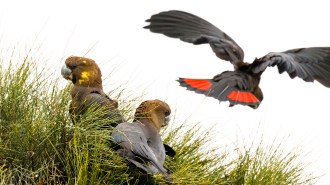 Animals
AnimalsA year after Australia’s wildfires, extinction threatens hundreds of species
As experts piece together a fuller picture of the scale of damage to wildlife, more than 500 species may need to be listed as endangered.
-
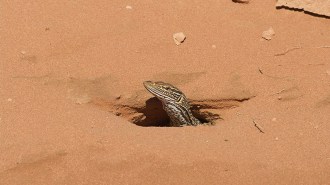 Life
LifeMonitor lizards’ huge burrow systems can shelter hundreds of small animals
Two species of Australian monitor lizards dig nests four meters deep. Now scientists reveal that the burrows are home to far more than their creators.
By Jake Buehler -

-
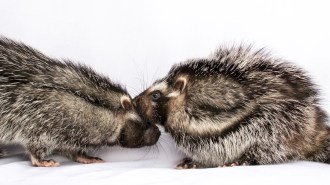 Plants
PlantsRats with poisonous hairdos live surprisingly sociable private lives
Deadly, swaggering rodents purr and snuggle when they’re with mates and young.
By Susan Milius -
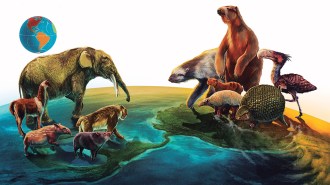 Paleontology
PaleontologyWhy South America’s ancient mammals may have lost out to northern counterparts
When North and South America joined millions of years ago, mammals from the north fared better in the meetup. Extinctions in the south may be why.
By Jake Buehler -
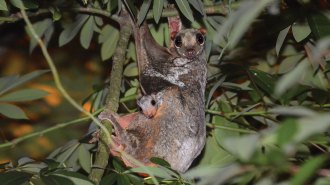 Animals
AnimalsOn a cool night in Malaysia, scientists track mysterious colugos across the treetops
Our reporter tags along for nighttime observations of these elusive gliding mammals.
By Yao-Hua Law -
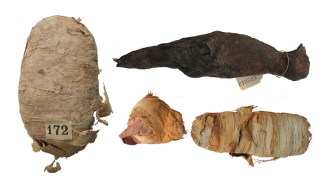 Archaeology
ArchaeologyX-rays reveal what ancient animal mummies keep under wraps
A new method of 3-D scanning mummified animals reveals life and death details for a snake, a bird and a cat.
-
 Health & Medicine
Health & MedicineHow two coronavirus drugs for cats might help humans fight COVID-19
Scientists are exploring if drugs for a disease caused by a coronavirus that infects only cats might help also people infected with the coronavirus.
-
 Health & Medicine
Health & MedicineNew treatments aim to treat COVID-19 early, before it gets serious
Some new drugs that may stop the coronavirus from getting into cells, or from reproducing itself, may treat the illness as soon as it’s diagnosed.
-
 Health & Medicine
Health & MedicineHydroxychloroquine can’t stop COVID-19. It’s time to move on, scientists say
Hydroxychloroquine doesn’t work as antiviral or a treatment for COVID-19, an abundance of scientific data suggest.
-
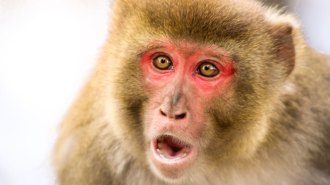 Psychology
PsychologyMonkeys may share a key grammar-related skill with humans
A contested study suggests the ability to embed sequences within other sequences, a skill called recursion and crucial to grammar, has ancient roots.
By Bruce Bower -
 Quantum Physics
Quantum PhysicsTo live up to the hype, quantum computers must repair their error problems
Before quantum computers can reach their potential, scientists will need to master quantum error correction.